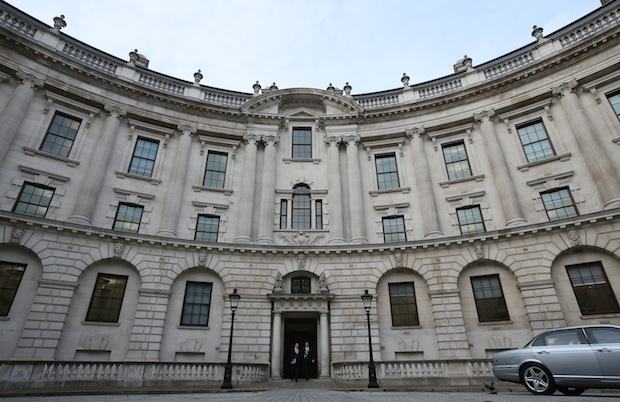Yesterday’s autumn statement included the results of the Treasury’s study of the dynamic impacts of the cuts to Corporation Tax, which George Osborne is down from 28 per cent to 20 per cent. This study used the new HMRC Computable General Equilibrium model – as Fraser reported on Wednesday – and the results are impressive.
- The cuts will increase investment by 2.5-4.5% (£3.6-£6.2 billion in today’s prices).
- They will increase GDP by 0.6-0.8% (equivalent to £9.6-£12.2 billion).
- Given the share that we can expect to go to labour, that equates to an increase in wages of £405-£515 a household.
- As a result of higher profits, wages and consumption, we can expect the cost of the policy to fall by 45-60 per cent in the long run.
It is important to put the magnitude of those changes in wage levels in context. According to other, static analysis released yesterday, households in the middle quintile are £300 a year worse off as a result of the cumulative overall impact of changes in public service spending, taxes, tax credits and benefits since the Emergency Budget in June 2010.
That means the entire impact of the fiscal adjustment on family finances could – in the long run – be offset by the higher wages that result from lower Corporation Tax, although the Treasury will try to take a chunk out of those higher wages in tax as well.

Britain’s best politics newsletters
You get two free articles each week when you sign up to The Spectator’s emails.
Already a subscriber? Log in







Comments
Join the debate for just £1 a month
Be part of the conversation with other Spectator readers by getting your first three months for £3.
UNLOCK ACCESS Just £1 a monthAlready a subscriber? Log in